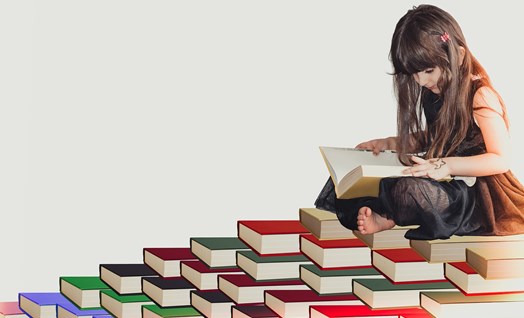Extensive Reading

Pupils read literary texts appropriate for their level and age.
These texts include short stories, poems, and graded readers for extensive reading.
The students are provided with tools to identify and describe events, settings, and main characters in literary texts.
They'll do this by using lower-order thinking skills, as well as by analyzing and interpreting literary texts using higher-order thinking skills.
Pupils will learn to recognize the use of basic literary techniques in a text, such as repetition, personification, rhythm, and rhyme.
They'll also learn to recognize and explain the use of literary techniques such as imagery, irony, and metaphors.
They'll understand the historical, social, and/or cultural contexts of the text and its author, and explain how these are reflected in the text or how they have influenced the writing of the text.
Students will reflect on the literary text - providing an oral, written or visual response to it by integrating higher-order thinking skills.
Extensive reading promotes learner autonomy, enhances general language competence, helps develop general world knowledge, and sustains vocabulary growth.
Extensive reading also improves writing skills and creates motivation to read more.
Grades and main subjects in curriculum
- Grade
- Main subject
- {{m.label}}{{$last ? '' : ', '}}



